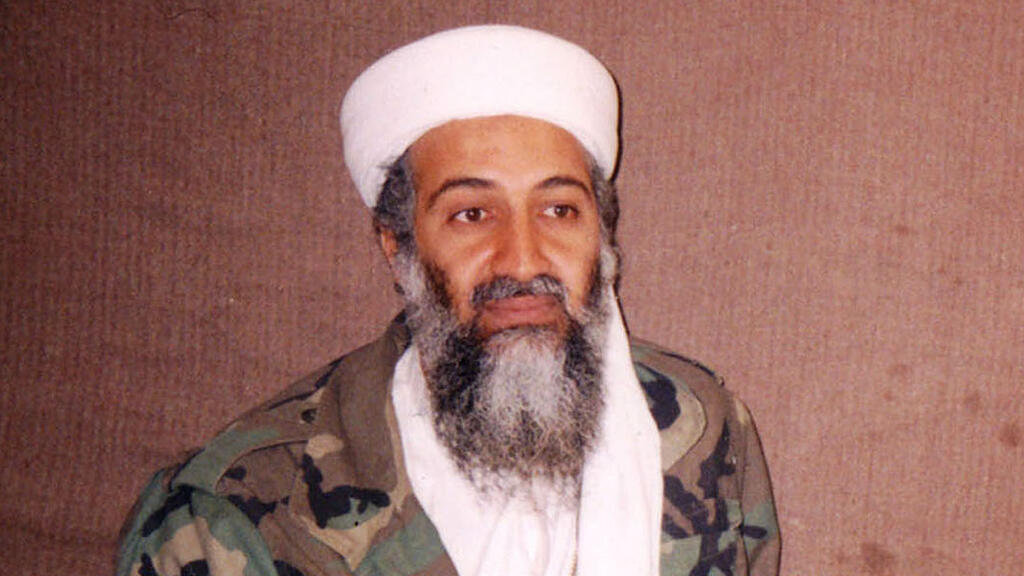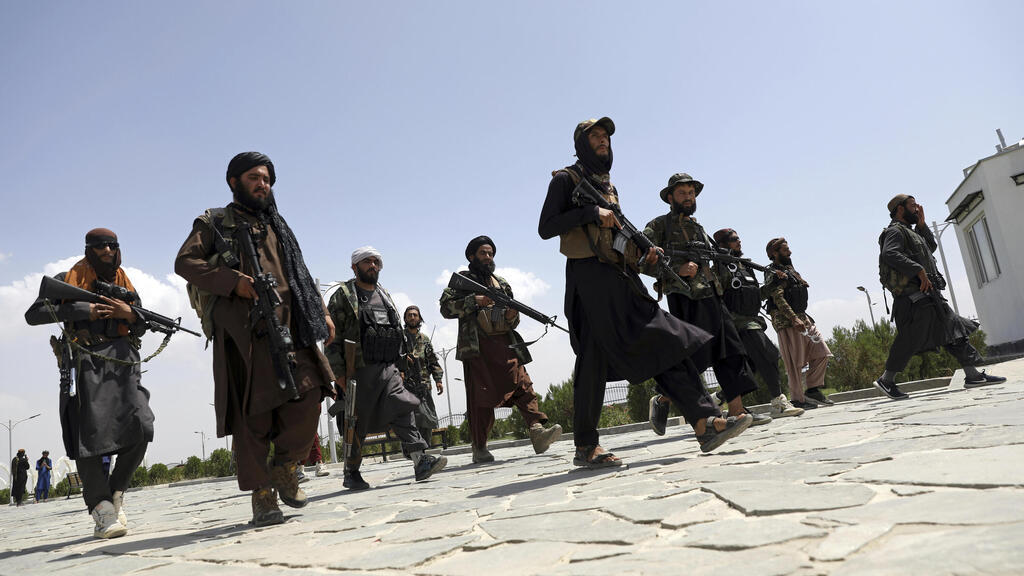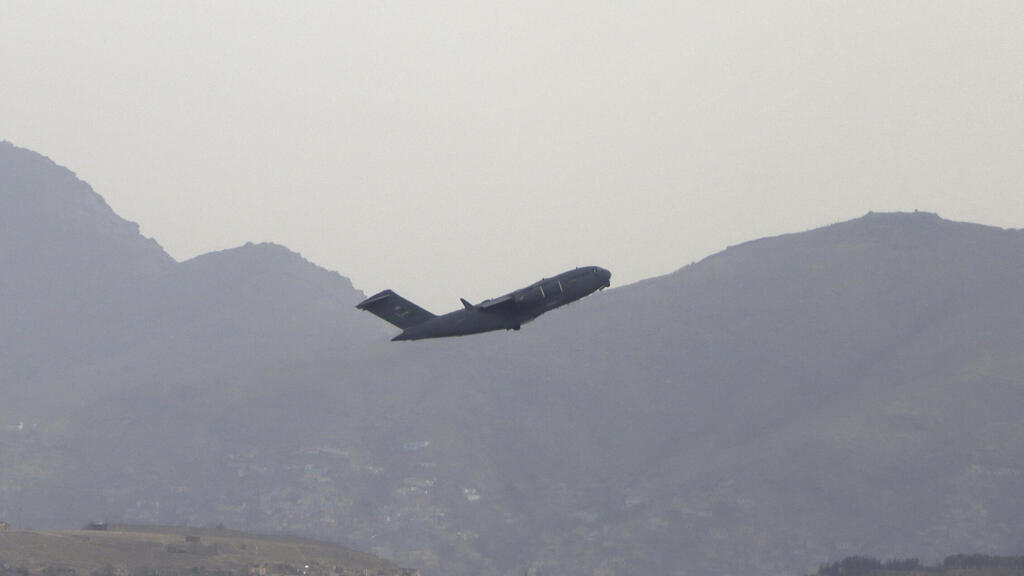Getting your Trinity Audio player ready...
Hamza bin Laden, the son of Osama bin Laden, is reportedly alive and leading al-Qaida in Afghanistan, according to a report by The Mirror. This contradicts earlier claims that he was killed in a 2019 CIA airstrike. Intelligence reports suggest that Hamza and his brother Abdullah are playing key roles in rebuilding al-Qaida’s influence across the region.
The Mirror notes, “Hamza bin Laden, often referred to as the ‘Crown Prince of Terror,’ survived the CIA operation targeting him.” The report continues, “Both brothers have established at least 10 al-Qaida training camps across Afghanistan, aligning with other extremist groups that oppose Western interests.”
'World’s largest hub for terrorist activity'
According to the report, “Their father, the dead 9/11 plotter, has spawned a terrorist network and dynasty hell-bent on murder across the world from beyond the grave.” The Mirror also asserts that Hamza spends most of his time in Jalalabad, a jihadist hub located about 100 miles east of Kabul.
The camps Hamza and Abdullah oversee train fighters and suicide bombers, equipping them with the skills needed to evade detection and carry out attacks beyond Afghanistan, particularly targeting Western countries.
“As many as 21 terror networks are currently operating within Afghanistan, making the country the world’s largest hub for terrorist activity,” The Mirror claims. “Recent assessments suggest that al-Qaida is collaborating with IS-KP [Islamic State-Khorasan Province, a regional affiliate of ISIS known for carrying out attacks in Afghanistan and Pakistan], raising concerns about the possibility of another 9/11-style attack on Western nations.”
It is also believed that Hamza bin Laden and al-Qaida’s de facto leader, Saif al-Adel, are using safe houses in several Afghan provinces, including Kandahar, Ghazni, Laghman, Parwan, Herat, and Helmand. These safe houses reportedly facilitate the movement of al-Qaida members to and from Iran.
“The parallels between the current situation and the prelude to the 9/11 attacks are alarming,” the report warns, as intelligence sources link the resurgence of extremist activities in Afghanistan to the absence of a stable government. The ideological alignment between the Taliban and these groups, it adds, is further exacerbating the situation.
Hamza’s survival could mark al-Qaida’s most significant revival since the Iraq War, raising fears of a new wave of terrorist activity targeting the West. Western intelligence agencies are cited in The Mirror, but no specific sources are named.
In 2019, then-President Donald Trump announced that an airstrike had targeted Hamza bin Laden in Ghazni Province, southeastern Afghanistan. However, no DNA evidence was obtained to confirm his death. Some media outlets, quoting a report by the National Mobilization Front, an anti-Taliban military alliance, claim that Hamza has since been relocated to the Dara Abdullah Khel district in Panjsher, northern Afghanistan, where he is reportedly guarded by a force of 450 Arabs and Pakistanis.
A senior intelligence officer based in Islamabad, speaking anonymously to The Media Line, noted, “The revival of al-Qaida comes slightly over a year after a U.S. drone strike in Kabul killed Ayman al-Zawahiri.” However, the Taliban has yet to officially confirm Zawahiri’s death, heightening concerns about its ties to al-Qaida. The source also claimed that Mahmood Shah Habibi, an Afghan American reportedly detained by the Taliban, has been handed over to al-Qaida.
'No one paid attention'
Meanwhile, Zabihullah Mujahid, the chief spokesperson for the Afghan Taliban, strongly rejected The Mirror’s report. He said, “Al-Qaida does not operate on Afghan soil. Afghanistan is fully complying with the Doha Peace Agreement and has never permitted, nor will it permit, any organization or individual to use Afghan land for their purposes.” Mujahid labeled the report as “propaganda spread by our opponents.”
Col. Gul Rahman, a retired deputy commander of the Afghan National Army, said, “The CIA report on the death of Hamza bin Laden was found to be based on incorrect information.” He explained that intelligence in conflict zones often relies on human sources, satellite data, and intercepted communications, which can be flawed.
“These sources, while valuable, can sometimes be flawed. In some cases, sources may provide misleading information or intelligence agencies may have incomplete data due to the rapidly shifting dynamics,” Rahman said.
He further argued that al-Qaida may have deliberately spread disinformation about Hamza’s death to help him regroup undetected. He claimed that the news of Hamza bin Laden being alive did not surprise him at all. While, in 2019, intelligence agencies had substantial evidence that Hamza bin Laden was alive, Rahman said that this news was inaccurate.
“We promptly informed our senior commanders and counterparts, but no one paid attention. After that, the situation in Afghanistan deteriorated even further,” he explained. Rahman noted that this situation ultimately forced him and his family to leave Afghanistan.
Rahman warned that the complex relationship between the Taliban, al-Qaida, and other regional actors creates a volatile security environment. He suggested this development could prompt a reassessment of U.S. and international policies toward Afghanistan and counterterrorism efforts in the region.
Irina Tsukerman, a New York-based national security expert, said, “I have personally witnessed al-Qaida training camps in Afghanistan. Some of al-Qaida’s leaders, including Saif al-Adel, moved from Iran to Afghanistan within a year of the U.S. withdrawal, while Hamza bin Laden has been reactivating old networks and emerging as a ‘legacy leader’ within the organization.”
Tsukerman added that this resurgence “is not a failure of the CIA, but rather a failure of U.S. government policy. She argued that while U.S. intelligence likely has accurate satellite imagery of al-Qaida’s military buildup, the Biden administration has restricted the collection of human intelligence from non-Taliban sources. “This allows the Taliban to provide misleading intelligence to the U.S., claiming the camps are solely for fighting IS-KP, which the U.S. has politically accepted,” she continued.
With U.S. elections approaching, Tsukerman emphasized that the administration is focused on minimizing political fallout. She pointed out that this could become a significant issue for Vice President Kamala Harris, who will likely face difficult questions regarding her role in the Afghanistan withdrawal and her future approach to counterterrorism policy.
Professor Adrian Calamel, a South Asian expert and senior fellow at the Washington-based Arabian Peninsula Institute, pointed to the intelligence failures in how the U.S. gathers and interprets information. “American agencies have become overly reliant on signals intelligence (SIGINT), neglecting human intelligence (HUMINT), which traditionally involves using embedded sources on the ground,” he said.
He further explained that much of what qualifies as human intelligence now comes from government feeds provided by host nations, rather than intelligence gathered from enemy territories. “This flawed system has repeatedly led to erroneous reports about high-value targets,” Calamel said, citing past cases where al-Qaida leaders were mistakenly declared dead, only to be found alive years later.
Farzana Shah, a Peshawar-based expert on Afghanistan’s armed groups and editor of The Global Conflict Watch, said, “The revelation that Hamza bin Laden is still alive raises significant concerns for global and regional security.” Shah argued that this development poses a serious threat not only to the U.S. and the European Union but also to regional allies such as Pakistan.
“The Taliban’s documented support for al-Qaida negates their assertions of renouncing global terrorism, a claim they have maintained since capturing Afghanistan in 2021,” Shah added. “Pakistan and Central Asian countries are becoming more attractive to foreign jihadist fighters, which further escalates the global threat.”
Shah warned that this situation could lead to another wave of military interventions, drone strikes, and new counterterrorism policies aimed at disrupting al-Qaida’s operations. “Pakistan has already warned the West about a potential 9/11-style terror plot originating from Afghanistan,” Shah emphasized. She cautioned that if the U.S. decides to re-enter Afghanistan to capture or kill Hamza, the consequences for Pakistan could be significant.
“As a victim of terrorism with Afghan origins, Pakistan would once again be compelled to lend support to international efforts against terrorism,” Shah added. “However, in retaliation, al-Qaida and the Taliban might escalate their terror campaigns against Pakistan.”






